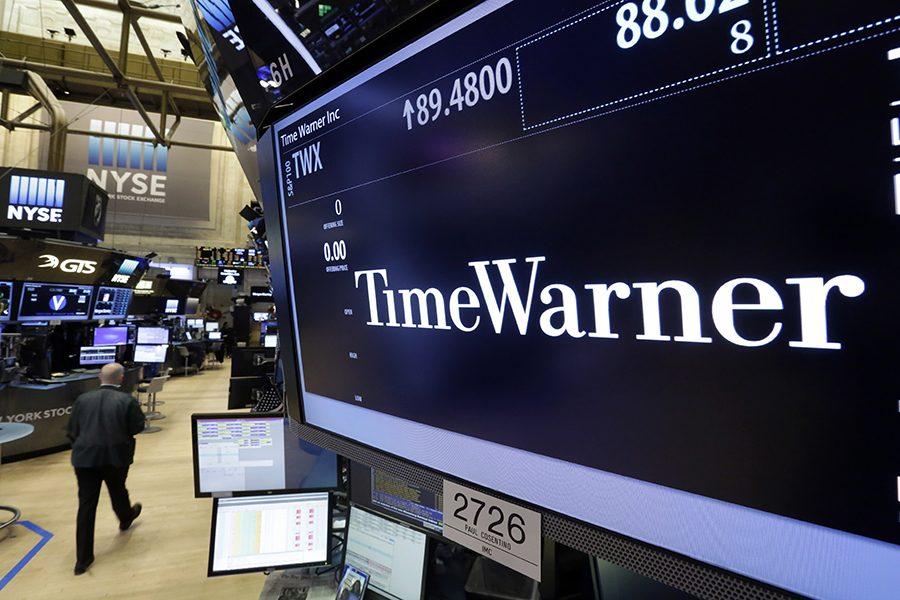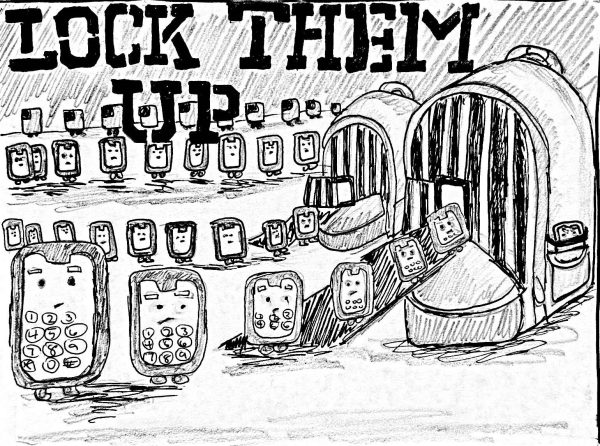AT&T Merger or Monopoly?
A trader walks by the post that handles Time Warner on the floor of the New York Stock Exchange, Monday, Oct. 24, 2016. AT&T’s $85.4 billion purchase of Time Warner represents a new bet on synergy between companies that distribute information and entertainment to consumers and those that produce it. (AP Photo/Richard Drew)
In a rapidly progressing society, it is not uncommon for companies to merge for benefits in profit and advertising. However, some of these merges stir controversy over what is best for the consumer and possible regulations. Recently, the telecommunications company AT&T announced their proposal to buy the media company Time Warner for $85.4 billion.
Despite possible scrutiny from regulators such as the Department of Justice and the Federal Communications Commission, the deal has much promise for improved viewing quality and lowered prices. In turn, the AT&T and Time Warner merger should be carried out by the two corporations.
One of the main pros of the deal is the possibility of innovative content. AT&T has already made statements that they believe the deal will aid them in implementing video innovations. Both parties promise an increase in premium content and better formatting for mobile devices due to the relationship between the content creators at Time Warner and the content distributors of AT&T. The new relationship between the two companies will reduce the amount of contract and rights negotiations they must go through in order to implement new content.
Another point in favor of AT&T buying Time Warner will be their newfound potential as a competitor to cable. The arrangement has the ability to draw in advertisers due to the popularity of the two companies. This not only will lower the cost of programming for consumers, but will allow the two companies to compete with companies that have been successful at digital advertising such as Google and Facebook.
The most valid reason for AT&T to buy Time Warner is for the satisfaction of their consumers. The companies believe that merging would give Time Warner the ability to access AT&T’s data about their subscribers and offer more relevant content. This means that consumer advertisements would be geared more toward their personal interests, in hopes of pleasing consumers and increasing profit.
Those opposed to the deal claim that it is too similar to a monopoly, which would decrease competition between similar companies and increase prices. However, this deal is what is called a vertical merger which means that the two companies don’t directly compete because they provide different services and therefore, their merging would not decrease competition. This is dissimilar to a horizontal merger where two companies selling the same product or service merge and, in turn, decrease competition.
Lawmakers, regulators, and members of Wall Street are skeptical of the deal, but no one truly knows what the outcome of the merge would be. This is the vertical merger involving two large media companies. Regardless, the merger should be carried out because of the benefits it will grant not only the companies involved, but the consumer.







